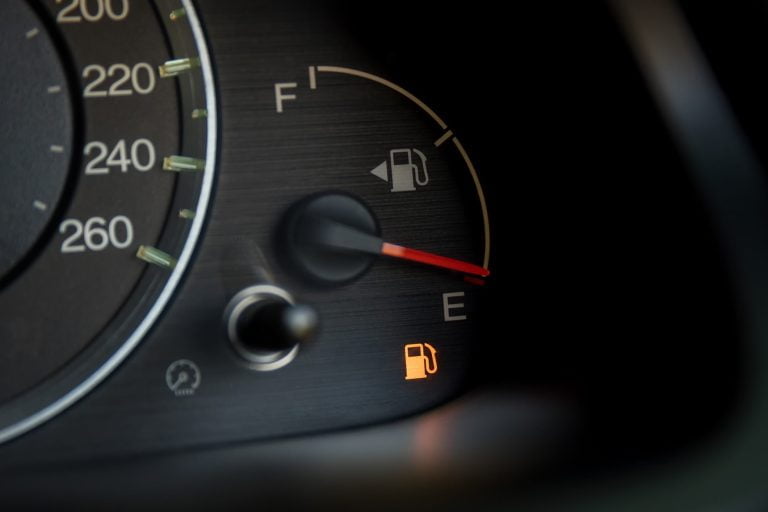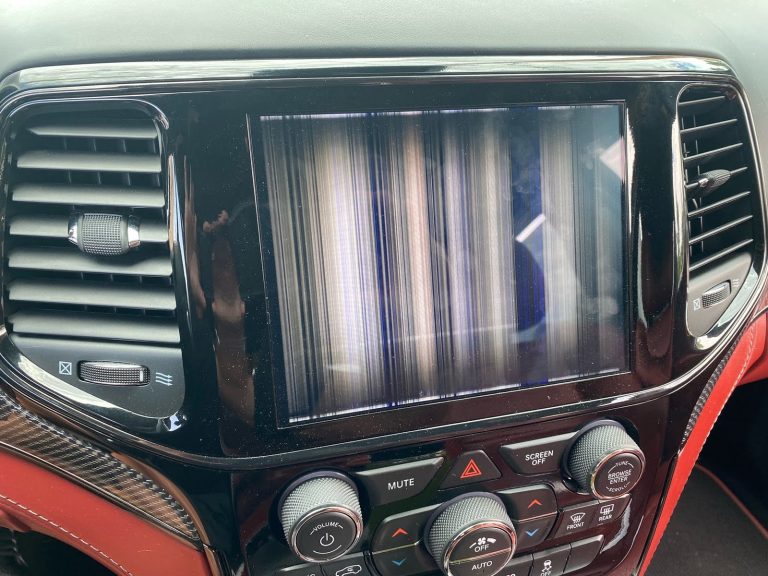Jeep Compass Overheating: Causes, Symptoms, and Solutions
Is your Jeep Compass feeling the heat a bit too much?
Overheating issues can put a damper on your driving experience, but fear not!
By understanding the common culprits like low coolant, a faulty thermostat, or a problematic water pump, you can keep your Compass cruising cool and problem-free.
Let’s dive in!
jeep compass overheating
When a Jeep Compass is overheating, it is typically caused by issues such as low or contaminated coolant, a defective thermostat, a faulty water pump, or a faulty head gasket.
If your Jeep Compass starts overheating, it is important to stop in a safe location, allow the engine to cool before driving again, and contact a tow truck if there is steam coming from the engine.
Maintaining proper coolant levels and addressing common problems can help prevent engine overheating.
Common causes of coolant flow and air flow issues in the Jeep Compass can lead to overheating problems and should be resolved promptly to avoid engine damage.
Regular maintenance, using coolant instead of water, and keeping the radiator clean are essential practices to prevent overheating in the Jeep Compass.
Key Points:
- Jeep Compass overheating caused by low or contaminated coolant, defective thermostat, faulty water pump, or faulty head gasket
- Steps to take if overheating: stop in safe location, allow engine to cool, contact tow truck if steam is seen
- Importance of maintaining proper coolant levels and addressing common problems to prevent overheating
- Coolant flow and air flow issues in Jeep Compass can lead to overheating problems
- Prompt resolution of coolant and air flow issues essential to avoid engine damage
- Regular maintenance, use of coolant, and keeping radiator clean crucial to prevent overheating in Jeep Compass
Check this out:
Common Causes Of Jeep Compass Overheating
When it comes to the Jeep Compass overheating, there are several common causes that can lead to this issue. One of the main culprits is low or contaminated coolant. Coolant plays a crucial role in regulating the temperature of the engine, so if it is insufficient or dirty, it can cause overheating. Another common cause is a defective thermostat, which may not be opening and closing properly to control the flow of coolant. A faulty water pump can also lead to overheating as it fails to circulate coolant effectively. Lastly, a faulty head gasket can allow coolant and oil to mix, leading to overheating issues.
Key points:
- Low or contaminated coolant
- Defective thermostat
- Faulty water pump
- Faulty head gasket
Tips For Dealing With Overheating
If you find yourself in a situation where your Jeep Compass is overheating, it is crucial to follow some essential tips to address the issue.
First and foremost, stop in a safe place as soon as possible to prevent further damage to the engine. Allow the engine to cool down before attempting to drive the vehicle again.
If you notice steam coming from the engine, it is advisable to contact a tow truck to avoid causing any additional damage.
These simple steps can help prevent more severe problems from occurring.
- Stop in a safe place immediately
- Allow the engine to cool down
- Contact a tow truck if you notice steam coming from the engine.
Preventing Engine Overheating
Preventing engine overheating in your Jeep Compass is crucial for the longevity and efficiency of your vehicle. Here are some essential tips to keep in mind:
- Regularly check and maintain coolant levels to prevent overheating.
- Address common issues such as low coolant levels, worn-out pumps, clogged radiators, and malfunctioning thermostats promptly.
- Ensure proper airflow through the radiator by keeping it clean and addressing issues like clogged/bent radiator fins, faulty electric fans.
- Use high-quality coolant to maintain optimal engine temperature.
Remember, proactive maintenance is key to preventing engine overheating and avoiding costly repairs in the long run.
Causes Of Engine Overheating In A Jeep Compass
- In a Jeep Compass, engine overheating can be caused by various factors.
- Inadequate coolant flow is a significant issue that can lead to overheating.
- This can stem from low coolant levels, worn-out pumps, clogged radiators, or malfunctioning thermostats.
- Insufficient air flow through the radiator can also cause engine overheating.
- Common air flow issues include clogged or bent radiator fins, faulty electric fans, and using poor-quality coolant.
- Identifying and addressing these issues promptly is crucial in preventing engine overheating.
Coolant Flow Issues
Coolant flow is essential for maintaining the proper temperature of the engine in a Jeep Compass. Issues with coolant flow, such as low levels, worn-out pumps, clogged radiators, or malfunctioning thermostats, can lead to overheating. Regularly checking and maintaining the coolant system can help prevent these problems and ensure the engine runs at the optimal temperature.
- Proper coolant flow is crucial for engine temperature regulation
- Watch out for low coolant levels, worn-out pumps, clogged radiators, or faulty thermostats
- Regular maintenance of the coolant system is key to avoid overheating.
Air Flow Issues
Proper air flow through the radiator is crucial for preventing engine overheating in a Jeep Compass. Issues such as clogged or bent radiator fins, faulty electric fans, and poor-quality coolant can all impede air flow. It is essential to address these problems promptly, keep the radiator clean, and utilize high-quality coolant to maintain the efficiency of the cooling system and prevent overheating.
- Regularly inspect and clean the radiator fins
- Ensure electric fans are functioning properly
- Use high-quality coolant to avoid clogging and corrosion of the system
Ensuring proper air flow through the radiator is crucial for preventing engine overheating in a Jeep Compass. Clogged or bent radiator fins, faulty electric fans, and using poor-quality coolant can all contribute to air flow issues. Addressing these problems promptly, keeping the radiator clean, and using high-quality coolant can help maintain the efficiency of the cooling system and prevent overheating.
Importance Of Coolant And Maintenance
Using coolant instead of water in your Jeep Compass is crucial for maintaining the proper temperature of the engine. Coolant has a higher boiling point and lower freezing point than water, making it more effective in regulating engine temperature. Additionally, keeping the radiator clean, performing regular maintenance, and addressing any issues promptly can help prevent engine overheating and ensure the longevity of your vehicle.
- Use coolant instead of water
- Keep the radiator clean
- Perform regular maintenance
- Address issues promptly
Impact Of Inadequate Lubricant
- Inadequate lubrication in the engine can have a significant impact on its temperature and wear.
- Proper lubrication is essential for reducing friction between moving parts and dissipating heat.
- Without adequate lubricant, the engine can overheat, leading to increased wear and potential damage.
- Regularly checking and changing the oil in your Jeep Compass is crucial for maintaining proper engine temperature and performance.
Risks Of Cylinder Head Damage
Engine Overheating Risk in Jeep Compass: Cylinder Head Damage
When a Jeep Compass engine overheats, there is a significant risk of cylinder head damage. Overheating can cause combustion gases to seep into the cooling system, exerting pressure on the cylinder head gasket. This pressure can lead to leaks, warping, or even cracking of the cylinder head, necessitating expensive repairs.
It is crucial to address overheating problems immediately to avoid cylinder head damage and maintain the longevity of your vehicle.
- Addressing overheating issues promptly is essential to prevent cylinder head damage
- Combustion gases entering the cooling system can result in leaks, warping, or cracking of the cylinder head
- Ensuring proper engine cooling system maintenance is crucial for the overall well-being of the Jeep Compass
“Engine overheating can have severe consequences on the cylinder head integrity, emphasizing the importance of timely maintenance and attention to cooling system issues.”
Engine Cooling System Components
The engine cooling system in a Jeep Compass comprises several critical components that collaborate to regulate the engine temperature effectively:
- Coolant
- Radiator
- Coolant pump
- Thermostat
- Temperature sensor
- Electric fan
The coolant absorbs heat from the engine and circulates it through the radiator for cooling. The coolant pump ensures proper circulation, and the thermostat regulates the flow of coolant. The temperature sensor monitors the engine temperature, while the electric fan aids in dissipating heat from the radiator.
In summary, these components work together to maintain the optimal engine temperature range of around 190°F (90°C) in a Jeep Compass.
- Coolant absorbs heat from the engine and circulates it through the radiator
- Coolant pump ensures proper circulation
- Thermostat regulates the flow of coolant
- Temperature sensor monitors the engine temperature
- Electric fan helps dissipate heat from the radiator
FAQ
Why is my jeep suddenly overheating?
A sudden overheating issue with your Jeep could be due to a low coolant level or contamination in the coolant system. It is essential to ensure your coolant is at the proper level and free from any impurities that could cause the engine to overheat. Another common culprit for Jeep overheating is a faulty thermostat. A malfunctioning thermostat can disrupt the coolant flow, leading to overheating issues. Be sure to check these components first when troubleshooting your Jeep’s sudden overheating problem.
How much does it cost to replace a thermostat in a 2014 Jeep Compass?
Replacing the thermostat in a 2014 Jeep Compass typically costs between $406 and $442. This includes both the labor costs, which can range from $136 to $172, and the price of the parts, usually around $270. It’s important to ensure the thermostat is functioning properly to maintain the optimal performance of the vehicle’s cooling system.
How much does it cost to replace a radiator in a 2014 Jeep Compass?
The cost to replace a radiator in a 2014 Jeep Compass typically falls between $977 and $1,032. This estimate includes labor costs ranging from $144 to $182, with parts priced between $833 and $850. Keep in mind that additional taxes and fees may apply, and the final cost could vary depending on your specific location.
Why does my jeep heat up so fast?
One possible reason your Jeep may be heating up quickly could be due to a low coolant level. Coolant plays a crucial role in regulating the engine temperature, and if it is insufficient, the engine may overheat more quickly. Another potential cause could be a stuck closed thermostat, which can impede the flow of coolant and lead to rapid overheating. It is also worth checking for a faulty water pump, as it may not be circulating coolant effectively, causing the engine to heat up more rapidly than usual.
💡 Did You Know?
1. The Jeep Compass was originally developed as a replacement for the aging Jeep Cherokee model, but ended up becoming its own distinct vehicle model.
2. In extreme temperatures, the Jeep Compass’ engine cooling system may struggle to dissipate heat efficiently, leading to potential overheating issues.
3. The Jeep Compass is equipped with a unique “thermal bypass valve” that helps regulate engine temperature by controlling the flow of coolant through the radiator.
4. The Jeep Compass’ cooling fan is programmed to activate automatically when the engine reaches a certain temperature threshold to prevent overheating.
5. Regular maintenance, such as checking coolant levels and inspecting the cooling system for leaks, is crucial for preventing overheating in the Jeep Compass.



